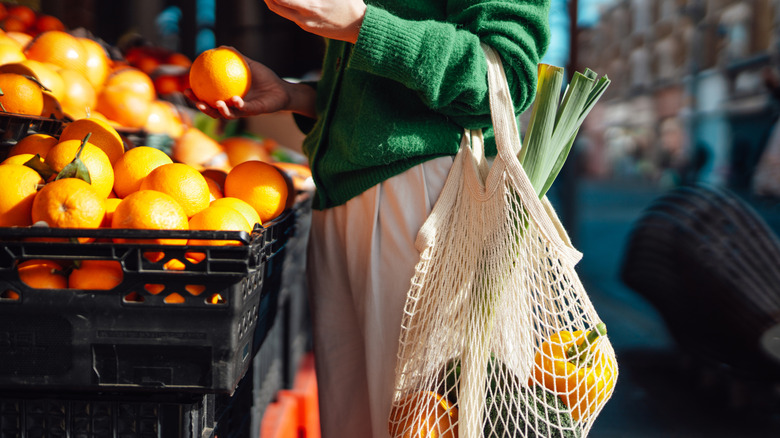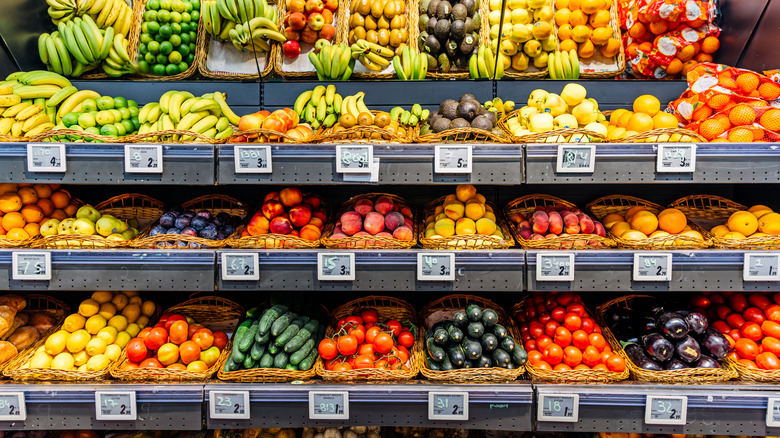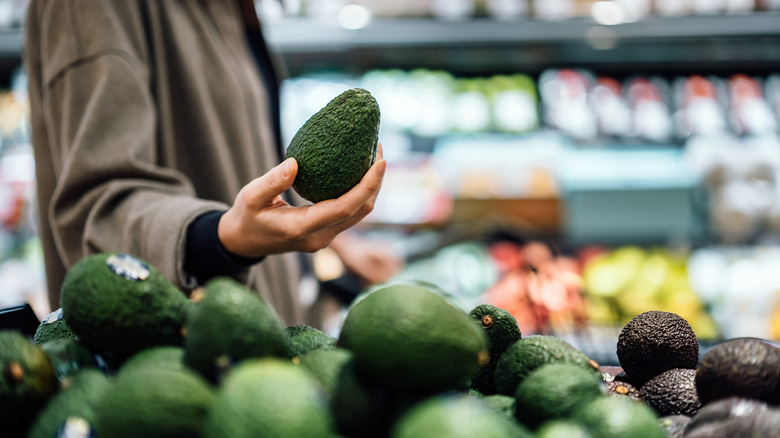The Common Produce Mistake That's Draining Your Grocery Budget
Grocery shopping in 2025 can feel like a headache and a half. Between ongoing inflation keeping prices high (according to the USDA, food prices increased 25% from 2019 to 2023), specific items like eggs skyrocketing in price due to H5N1, and increasing rates of food recalls, shopping for your family can feel more complicated than ever. While more and more Americans financially struggle to afford their everyday staples, relief does not appear to be in sight anytime soon. According to the USDA's Food Price Outlook report, food prices (including food at home and food away from home) are anticipated to rise by another 1.9% in 2025. While this is less of an increase than what was experienced in 2024, it still does not bode well for those who might have been hoping for a decrease in prices across the board.
Even worse, some items are all but guaranteed to surpass the projected 1.9% price increase in 2025. For instance, egg prices in November 2024 were already 94.4% higher than they were in November 2023. Similarly, beef and veal prices were 5% higher in November 2024 compared to the year prior, with the USDA predicting an even faster price increase than other food categories due to higher production costs. However, even though food prices are going to continue increasing throughout 2025, there are still some tips and tricks that can help you manage your grocery bills. One category in particular that could be driving up your monthly grocery spending? Produce.
Buying out of season
One of the biggest ways that consumers end up spending more on their overall groceries is by spending too much in the produce section. One mistake in particular is buying fruits and vegetables that are out of season. While it's novel to find a watermelon in January, you will absolutely pay a premium for the privilege. Annie Cavalier, a nutritionist, explained to American Heart Association News why there is such a significant price difference between in season and out of season produce, "Whereas if it's a food that's not in season, not only do you have less of it, but they're also having to transport it from far away. So then you're having to pay for those transport fees, the refrigeration fees, all of those things that really add up and can make the out-of-season foods more expensive." According to data from the Federal Reserve Bank of St. Louis, the average price: for a pint of strawberries can fluctuate significantly from in vs out of season. For instance, in January 2024 the average pint was $3.65 in the U.S. compared to just $2.05 in June 2024.
Another thing to consider is that out of season produce generally won't taste as good as when it is in season because it must travel from further away. This means that the produce in question is harvested too early in order to provide enough time to be shipped and distributed to your local grocery store. This early harvesting can also affect the nutrient values of the produce.
Getting more out of your produce
While it can be tempting to buy already ripe produce at the store, that decision necessitates eating the produce in question fairly quickly after bringing it home. For certain produce items with short shelf lives, this can make it more difficult to actually get to eat the produce you pay for. This can be especially true for pre-packaged produce and fruit items. Instead, shopping for under-ripe produce can be the key to getting more out of your produce purchases. As Julie Ramhold, a consumer analyst with DealNews.com, explained to Reader's Digest, "We've all heard the jokes about buying an avocado and it being mush by the time we get it home, but it's worth buying slightly underripe produce and then letting it ripen at home."
Not only will the extra time provided to you from buying underripe produce give you a few extra days to decide how best to eat your produce, but it also increases the chances you'll actually be able to eat it and not throw it away. Ramhold went on to explain, "It'll give you more time to finish the produce with less pressure to rush through it and make yet another loaf of banana bread." You might be surprised to learn just how much food Americans waste every year, and just how much that can end up costing. This means that prioritizing actually eating all of the food in your fridge every week can help you not just improve your wastefulness, but also help to save your wallet.


